The Early Church Fathers were influential Christian theologians and writers who lived in the first centuries of the Christian era. They are also known as the Apostolic Fathers, since they were believed to have been directly taught by the apostles of Jesus Christ. The Early Church Fathers were responsible for developing and preserving the doctrines of the Christian faith, and their writings are still studied and revered today. They are credited with laying the foundation for the development of Christian theology and providing a basis for the development of the Christian Church.
Their writings and teachings have had a lasting impact on the Church and its theology, and their legacy continues to be felt today. Their contributions to the Church and its theology are invaluable, and their influence will continue to be felt for generations to come.
Discover the Wisdom of the Early Church Fathers.

Polycarp was an early Christian bishop of Smyrna in Asia Minor, now Izmir in modern-day Turkey. He is remembered as one of the most important figures in early Christianity, and is venerated as a saint in both the Eastern Orthodox and Roman Catholic Churches. He is believed to have been a disciple of the Apostle John, and is known for his steadfast faith and martyrdom. Polycarp is also remembered for his writings, which include a letter to the Philippians and an epistle to the Smyrnaeans. His life and teachings have been an inspiration to Christians for centuries, and his legacy continues to this day. Polycarp was a remarkable figure in early Christianity. He was a leader of the Church in Smyrna, and his martyrdom is remembered as a powerful example of faith and courage. His teachings and writings have been studied and admired for centuries, and his influence on the development of Christianity is undeniable. Polycarp’s life and death serve as a reminder of the power of faith and the importance of standing up for what is right. Polycarp’s life and legacy have had a lasting impact on the Church. His martyrdom and writings have shaped the Church, and his example of courage and faith has been an inspiration to many. His legacy has been remembered and celebrated for centuries, and his teachings continue to be studied and applied today. Polycarp’s life, legacy, and his example of courage and faith will continue to be remembered and celebrated for generations to come.
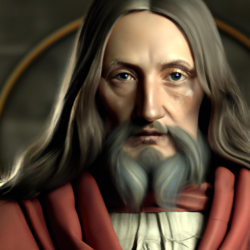
Irenaeus was born in the late second century in what is now modern-day Turkey. He was a student of Polycarp, the bishop of Smyrna, and was ordained as a bishop in 177 AD. He was sent to Gaul (modern-day France) to combat the spread of Gnosticism, a heretical movement that denied the divinity of Jesus Christ. Irenaeus was successful in his mission and his writings against Gnosticism were widely read and influential. Irenaeus is best known for his work, “Against Heresies”, which was written in the late second century. In this work, Irenaeus argued against the Gnostic teachings and defended the orthodox Christian faith. He argued that the Christian faith was based on the teachings of the apostles and that it was the only true faith. He also argued that the Bible was the only source of truth and that all other sources of knowledge were inferior. Irenaeus’s legacy is also seen in the development of Christian theology. His writings helped to shape the early Christian doctrine of the Trinity and to define the relationship between God the Father, Jesus Christ, and the Holy Spirit. His writings also helped to establish the doctrine of original sin and to define the role of the Church in salvation. His teachings and writings have been studied and discussed for centuries, and his influence can still be seen in the Church today. Irenaeus Bishop of Lyons was a great leader and teacher of the faith, and his legacy will continue to be remembered for generations to come.
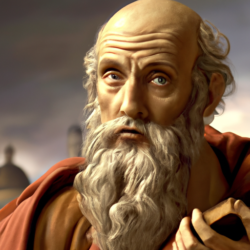
Ignatius of Antioch, also known as Theophorus, was an early Christian bishop and martyr who lived in the first and second centuries AD. He is remembered for his strong leadership in the early Church and his passionate defense of the faith. Ignatius was born in Syria and was the third bishop of Antioch, succeeding St. Peter. He was a student of the Apostle John and was a contemporary of Polycarp, another early Christian leader. Ignatius was a prolific writer and his letters are some of the earliest surviving Christian documents. He wrote to the churches of Ephesus, Magnesia, Tralles, Rome, Philadelphia, and Smyrna, as well as to individuals such as Polycarp and the Roman bishop, Clement. In these letters, Ignatius encouraged the churches to remain faithful to the teachings of the Apostles and to reject the teachings of heretics. He also warned against the dangers of false teachers and urged the churches to remain united in their faith. Ignatius was arrested and taken to Rome, where he was martyred in 107 AD. He was thrown to the wild beasts in the Colosseum, but the animals refused to attack him. He was then executed by being burned at the stake. His martyrdom was seen as a great victory for the early Church and his legacy has endured throughout the centuries. Ignatius’s legacy is one of courage and faithfulness. He was a strong leader who was willing to stand up for what he believed in, even in the face of death. His writings are still studied today and his example of faithfulness and courage is an inspiration to Christians everywhere. Ignatius of Antioch will always be remembered as one of the great heroes of the early Church.

Hippolytus of Rome (170-235 AD) was an influential early Christian theologian and philosopher who had a profound impact on the development of Christianity. Hippolytus was born in Rome and was a student of Irenaeus, the Bishop of Lyons. He was a staunch defender of orthodoxy and was highly critical of the Gnostic teachings of his day. He was also a proponent of the Logos doctrine, which held that Jesus was the incarnation of the Logos, or Word of God. This doctrine was later adopted by the Church Fathers and became a cornerstone of Christian theology. He was a staunch defender of orthodoxy and was an outspoken critic of heretical groups. He was a major opponent of the teachings of Origen, a prominent theologian of the time. Hippolytus was also a prolific writer, producing works on a variety of topics, including theology, philosophy, and biblical exegesis. His most famous work is the Refutation of All Heresies, which was a comprehensive refutation of the various heresies of his day. He also wrote commentaries on the Bible, as well as works on the Trinity, the Incarnation, and the Eucharist. His legacy continues to be felt today, and his teachings are still studied and discussed. He is also remembered for his martyrdom, which was the result of his refusal to renounce his faith.

Tertullian was born in Carthage, North Africa, around the year 160. He was educated in law and was a member of the Roman upper class. He was a convert to Christianity and was baptized around the year 197. He was a prolific writer and his works cover a wide range of topics, including theology, philosophy, and apologetics. He is best known for his defense of the Christian faith against paganism and his advocacy of the Christian lifestyle. Tertullian was a staunch defender of the faith and was an advocate of the traditional Christian teachings. He was a strong opponent of Gnosticism and other forms of heresy. He was also a proponent of the doctrine of the Trinity and wrote extensively on the subject. He was a major influence on the development of Christian doctrine and his writings were widely read and respected in the early Church. Tertullian was a major proponent of the doctrine of the Trinity, which holds that God is one being in three persons. He was the first to use the Latin term “Trinitas” to refer to the triune nature of God, and his writings are credited with helping to shape the doctrine of the Trinity as it is understood today. He also wrote extensively on the nature of Christ, arguing that Jesus was both fully human and fully divine. Overall, Tertullian’s writings had a profound impact on the development of early Christian thought and doctrine. His writings helped to shape the Church’s views on the Trinity, Christology, ethics, worship, and persecution, and they remain an important source of insight into the development of early Christian thought.
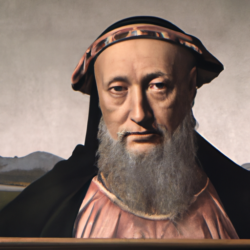
Augustine of Hippo (354-430 AD) is widely regarded as one of the most influential figures in the history of Christianity. His contributions to early Church thought have had a lasting impact on the development of Christian theology and philosophy. Augustine was born in the Roman province of Numidia, in what is now Algeria. He was raised in a Christian household, but he was not baptized until he was an adult. After his conversion, Augustine devoted himself to the study of Scripture and the writings of the Church Fathers. He was ordained a priest in 391 and became Bishop of Hippo in 395. Augustine’s most influential work is The City of God, which was written in response to the sack of Rome by the Visigoths in 410. In this work, Augustine argued that the earthly city is subject to the rule of God, and that the heavenly city is the ultimate goal of all Christians. He also argued that the Church should be a spiritual city, not a political one. Augustine’s other major contribution to early Church thought was his doctrine of grace. He argued that grace is a free gift from God, and that it is not earned through human effort. He also argued that grace is necessary for salvation, and that it is only through grace that humans can be reconciled to God. Augustine’s writings also had a profound influence on the development of Christian ethics. He argued that humans are naturally inclined towards sin, and that only through grace can they be saved from it. He also argued that humans should strive to live a life of virtue, and that they should seek to love God and their neighbor. Augustine’s influence on early Church thought is still felt today. His writings have been studied and debated for centuries, and his ideas continue to shape the way Christians think about faith and morality. His contributions to early Church thought have been invaluable, and his legacy will continue to be felt for generations to come.

Jerome (c. 347-420) was a prominent figure in the development of early Church doctrine. He is best known for his translation of the Bible into Latin, known as the Vulgate, which became the standard version of the Bible for the Western Church. He was also a prolific writer and theologian, and his works had a significant influence on the development of early Church doctrine. Jerome was born in Stridon, a small town in Dalmatia, and was educated in Rome. He was a student of the Bible and was well-versed in both Greek and Latin. He was also a student of the Church Fathers, and was particularly influenced by the works of Origen and Tertullian. Jerome was a major proponent of the doctrine of the Trinity, which states that God is one being in three persons. He argued that the Father, Son, and Holy Spirit are distinct persons, but are united in one Godhead. He also argued that the Father is the source of all things, and that the Son and Holy Spirit are subordinate to the Father. Jerome was also a major proponent of the doctrine of the Incarnation, which states that Jesus is both fully God and fully man. He argued that Jesus was both divine and human, and that his divine nature was united with his human nature in one person. He also argued that Jesus was born of a virgin, and that he was sinless. Jerome was also a major proponent of the doctrine of original sin, which states that all humans are born with a sinful nature. He argued that Adam and Eve’s disobedience in the Garden of Eden resulted in the corruption of the human race, and that all humans are born with a sinful nature. Jerome’s writings had a major influence on the development of early Church doctrine. His works were widely read and discussed, and his views on the Trinity, Incarnation, and original sin were widely accepted by the Church. His translation of the Bible into Latin, the Vulgate, became the standard version of the Bible for the Western Church, and his works remain influential to this day.
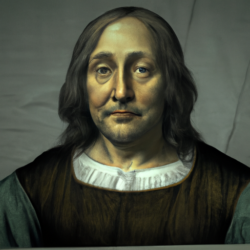
Ambrose of Milan (340-397 AD) was a major figure in the early Church, and his influence on the development of Christian liturgy was significant. He was a bishop, a theologian, and a prolific writer, and his works had a profound impact on the development of Christian worship. Ambrose was a major proponent of the use of hymns in Christian worship. He wrote several hymns himself, and encouraged the use of hymns in the liturgy. He believed that hymns should be used to express the joy of the Christian faith, and to help the congregation to focus on the words of the liturgy. He also encouraged the use of antiphonal singing, in which the congregation would sing alternate verses of a hymn. Ambrose was also a major proponent of the use of Scripture in the liturgy. He believed that Scripture should be read aloud in the liturgy, and that it should be used to explain and illustrate the meaning of the liturgy. He also encouraged the use of Scripture in the homily, and he wrote several commentaries on the Bible. Ambrose was also a major proponent of the use of symbols in the liturgy. He believed that symbols could be used to help the congregation to understand the meaning of the liturgy. He encouraged the use of candles, incense, and other symbols in the liturgy, and he wrote several treatises on the use of symbols in the liturgy. Finally, Ambrose was a major proponent of the use of music in the liturgy. He believed that music could be used to help the congregation to focus on the words of the liturgy, and to express the joy of the Christian faith. He wrote several treatises on the use of music in the liturgy, and he encouraged the use of both vocal and instrumental music in the liturgy. Ambrose’s influence on the development of early Church liturgy was significant. His works helped to shape the liturgy of the early Church, and his ideas are still reflected in the liturgies of many Christian denominations today.
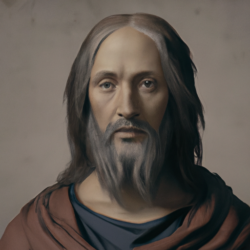
Gregory of Nyssa is one of the most important figures in early Church history. He was a fourth-century theologian and bishop who is widely regarded as one of the three Cappadocian Fathers, along with Basil the Great and Gregory of Nazianzus. His writings and teachings had a profound influence on the development of Christian doctrine and theology. Gregory of Nyssa was born in the city of Caesarea in Cappadocia, in what is now modern-day Turkey, in the year 335. He was the younger brother of Basil the Great and the two were very close. He was ordained a priest in 362. In 371, he was appointed Bishop of Nyssa, a small town in Cappadocia. Gregory of Nyssa is best known for his contributions to Trinitarian theology. He was a staunch defender of the doctrine of the Trinity, which holds that God is one being in three persons. He argued that the Father, Son, and Holy Spirit are distinct persons, yet united in one divine essence. He also wrote extensively on the Incarnation, the doctrine that Jesus Christ is both fully God and fully man. Gregory of Nyssa was also a major proponent of the Nicene Creed, which was formulated at the Council of Nicaea in 325. He wrote several works defending the Nicene Creed and its teachings, including his treatise On the Holy Spirit. He also wrote extensively on the nature of the soul and the afterlife, and was a major influence on later Christian thinkers such as Augustine of Hippo. Gregory of Nyssa’s influence on early Church history is undeniable. His writings and teachings helped to shape the development of Christian doctrine and theology, and his works remain important to this day. He is remembered as one of the most important figures in early Church history, and his legacy continues to be felt.

Athanasius of Alexandria was a prominent figure in the early Church, and his influence on early Church theology was immense. He was born in Alexandria, Egypt in the year 296 AD and was a student of the renowned theologian, St. Alexander of Alexandria. He was ordained a priest in the year 319 AD and was later appointed Bishop of Alexandria in 328 AD. Athanasius is best known for his staunch defense of the doctrine of the Trinity. He was a major proponent of the Nicene Creed, which was formulated at the Council of Nicaea in 325 AD. This creed declared that the Father, Son, and Holy Spirit were all of one substance, and that the Son was of the same substance as the Father. This was in opposition to the Arian heresy, which denied the divinity of Christ. Athanasius wrote extensively on the subject, and his works were instrumental in the eventual acceptance of the Nicene Creed by the Church. Athanasius was also a major proponent of the doctrine of the Incarnation. He argued that the Son of God had taken on human form in order to redeem mankind from sin. This doctrine was also accepted by the Church, and it is still a cornerstone of Christian theology today. Athanasius was also a major defender of the authority of Scripture. He argued that the Bible was the inspired Word of God and should be taken as authoritative. This view was also accepted by the Church, and it is still a major part of Christian theology today. Athanasius was a major figure in the early Church, and his influence on early Church theology was immense. His writings on the Trinity, Incarnation, and authority of Scripture were instrumental in the acceptance of these doctrines by the Church. His legacy is still felt today, and his influence on early Church theology is undeniable.
